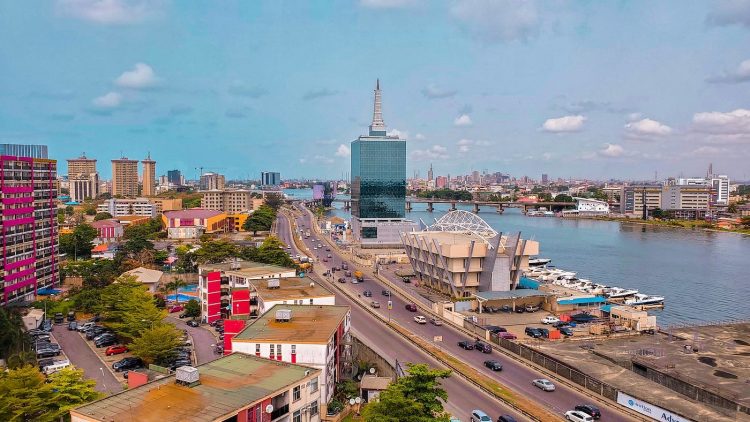Thriving Business Environment in Abuja: A Magnet for Economic Influx

Abuja, the capital city of Nigeria, has emerged as a dynamic hub for business and commerce, drawing attention from entrepreneurs and investors alike. The city’s strategic location, coupled with a conducive business environment, has propelled it into the spotlight as a thriving center for economic activities. In this article, we explore the factors contributing to the business influx in Abuja and delve into the various sectors that are driving its economic growth.
Geographical Advantage:
Abuja’s geographical location plays a pivotal role in its economic prominence. Positioned at the heart of Nigeria, the city serves as a central point for transportation and connectivity. The Nnamdi Azikiwe International Airport facilitates easy access for both domestic and international business travelers, fostering a seamless flow of goods and services. This strategic positioning has positioned Abuja as a gateway for businesses looking to tap into the vast Nigerian market.
Political Stability:
The political stability of Abuja stands out as a beacon for businesses seeking a secure environment to thrive. As the political capital of Nigeria, the city enjoys a heightened level of security and stability, which is crucial for businesses to operate efficiently. The presence of government institutions and foreign embassies further enhances the city’s stability, instilling confidence in investors and entrepreneurs.
Infrastructure Development:
Abuja has witnessed significant infrastructural development, with modern amenities and state-of-the-art facilities supporting business operations. The city boasts well-planned road networks, reliable power supply, and advanced telecommunication systems. The development of business parks and commercial centers provides entrepreneurs with a range of options to establish their enterprises. This robust infrastructure has attracted both local and international businesses, fostering a conducive environment for growth.
Real Estate Boom:
The real estate sector in Abuja has experienced a remarkable boom, driven by the influx of businesses and the city’s growing population. Investors are keenly investing in commercial and residential properties, anticipating a continuous rise in demand. The Abuja property market offers a diverse range of options, from office spaces in central business districts to luxury residences, catering to the varying needs of businesses and residents alike.
Diversification of Economy:
Abuja’s economy is not solely reliant on traditional sectors; instead, it has diversified across various industries. Information technology, telecommunications, finance, and hospitality are emerging as key players in the city’s economic landscape. The diversification has not only created a robust business ecosystem but has also mitigated risks associated with dependency on a single sector.
Entrepreneurial Spirit:
The entrepreneurial spirit in Abuja is palpable, with a burgeoning community of startups and small businesses. The city’s supportive ecosystem, including business incubators, accelerators, and networking events, fosters innovation and collaboration. Entrepreneurs in Abuja are tapping into opportunities across sectors, from agribusiness to technology, contributing to the city’s economic vibrancy.
Government Initiatives:
The Nigerian government has implemented various initiatives to attract businesses to Abuja. Incentives such as tax breaks, streamlined business registration processes, and financial support programs have been introduced to encourage entrepreneurship and foreign investments. These initiatives aim to create a business-friendly environment, removing barriers for both local and international investors.
Tourism and Hospitality:
Abuja’s appeal extends beyond its business landscape, with a growing tourism and hospitality sector. The city’s modern architecture, cultural attractions, and recreational spaces make it an attractive destination for business travelers and tourists alike. The hospitality industry has flourished, with hotels, restaurants, and entertainment venues catering to the diverse needs of visitors. This influx of tourists contributes to the overall economic growth of the city.
Challenges and Future Prospects:
While Abuja has experienced remarkable growth in its business landscape, it is not without challenges. Infrastructure maintenance, bureaucratic processes, and competition for prime real estate pose ongoing challenges. However, the city’s commitment to addressing these issues and the continuous support from the government positions Abuja for sustained economic growth.
In conclusion, Abuja’s rise as a business hub can be attributed to a combination of factors, including its strategic location, political stability, robust infrastructure, and a diversified economy. As the city continues to attract businesses and investments, it is poised to play a pivotal role in shaping Nigeria’s economic future. Abuja’s story serves as an inspiring example of how a well-planned and supported business environment can lead to a flourishing economy, benefiting both the local community and the broader national landscape.
-
Why is Abuja considered a hotspot for business influx?
- Abuja’s strategic location at the heart of Nigeria, coupled with political stability and robust infrastructure, makes it an attractive destination for businesses seeking growth and opportunities.
-
What sectors are driving the business growth in Abuja?
- Various sectors contribute to Abuja’s economic boom, including real estate, information technology, telecommunications, finance, and hospitality. The diversification of the economy has been a key factor in attracting businesses.
-
How has the real estate market contributed to the business influx in Abuja?
- The real estate sector in Abuja has experienced significant growth, driven by increased demand for commercial and residential properties. Investors are drawn to the booming market, anticipating a continuous rise in property value.
-
What role does political stability play in Abuja’s business environment?
- Abuja being the political capital of Nigeria enjoys a heightened level of security and stability. This political stability instills confidence in investors and entrepreneurs, creating a secure environment for businesses to operate efficiently.
-
Are there specific government initiatives to attract businesses to Abuja?
- Yes, the Nigerian government has implemented various initiatives, including tax breaks, streamlined business registration processes, and financial support programs. These incentives aim to create a business-friendly environment and attract both local and international investors.
-
How is the entrepreneurial ecosystem in Abuja supporting business growth?
- Abuja boasts a thriving entrepreneurial spirit, with a supportive ecosystem that includes business incubators, accelerators, and networking events. This ecosystem fosters innovation and collaboration among startups and small businesses.
-
What challenges does Abuja face in terms of business influx?
- Challenges include infrastructure maintenance, bureaucratic processes, and competition for prime real estate. Addressing these challenges is crucial for sustaining the city’s economic growth.
-
How does tourism contribute to the business landscape in Abuja?
- Abuja’s appeal as a tourist destination contributes to the city’s economic growth. The hospitality sector has flourished, with hotels, restaurants, and entertainment venues catering to the needs of both business travelers and tourists.
-
Are there specific incentives for foreign investors looking to establish businesses in Abuja?
- Yes, the Nigerian government offers incentives such as tax breaks and financial support programs to encourage foreign investments. These initiatives aim to make Abuja an attractive destination for international businesses.
-
What is the future outlook for business influx in Abuja?
- The future outlook for Abuja is positive, with ongoing efforts to address challenges and support business growth. The city’s commitment to maintaining a conducive business environment positions it as a key player in Nigeria’s economic landscape.





